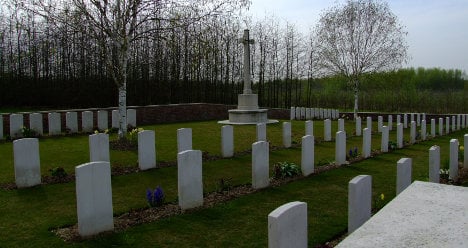The soldiers, two of whom have been identified, are to be re-interred in the Honourable Artillery Company (HAC) Cemetery at Ecoust-Saint-Mein near the northern town of Arras in a ceremony attended by relatives and Prince Michael of Kent.
Lieutenant John Harold Pritchard and Private Christopher Douglas Elphick were both killed during an attack by German forces near Bullecourt on the Hindenburg Line on the morning of May 15th, 1917.
Their bodies were discovered with two other sets of remains in 2009 when a local farmer was clearing a field.
Pritchard, 31 at the time of his death, was identified by a silver identity bracelet, and Elphick, 28, by a signet ring bearing his initials.
A former chorister and head boy at St Paul's cathedral school, Pritchard had joined the HAC as a reservist in 1909 and was part of the first wave of British soldiers to be sent into action when war broke out in 1914.
Injured in 1915, he could have opted for a desk job in London but chose to return to France, surviving the horrors of the Somme in 1916 before being slain as he led his men into a battle in which they were almost all killed.
Elphick, an insurance clerk, had joined up in 1915 and arrived in France in November 1916, three months after the birth of his son, Ronald Douglas, who was to serve in the HAC during World War II.
Ronald Douglas's sons, Chris and Martin Elphick, are due to attend Tuesday's ceremony while the Pritchard family are to be represented by his nephew Harold Shell and great nieces Janet Shell and Jennifer Sutton.
Prince Michael, a cousin of Queen Elizabeth II, will be present in his role as HAC Royal Honorary Colonel.
The two sets of unidentified remains will be interred as "HAC soldiers known unto God."
It is understood DNA samples have been taken to enable positive identification of the unknown soldiers should any relatives come forward in the future.



 Please whitelist us to continue reading.
Please whitelist us to continue reading.
Member comments